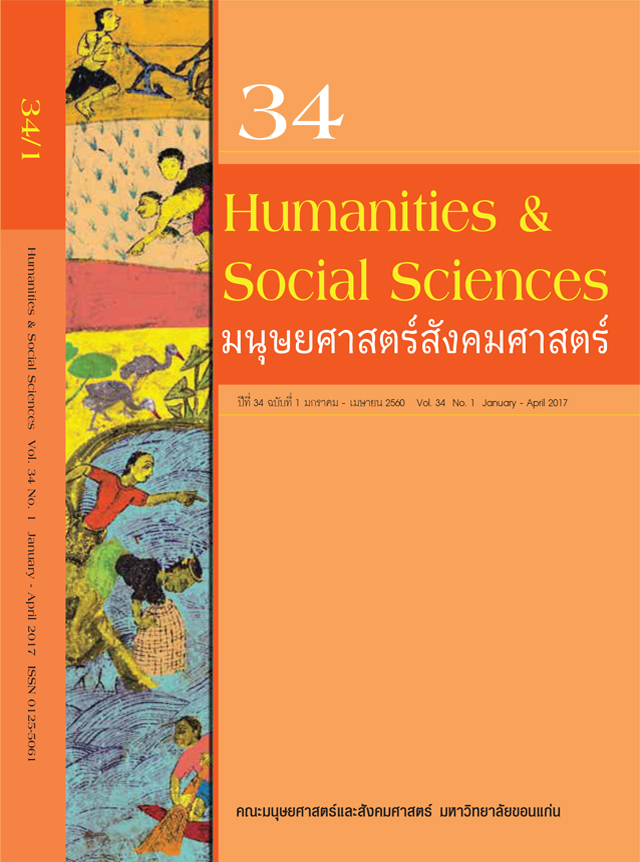แบบจำลองเชิงสาเหตุการเป็นสมาชิกที่ดีต่อองค์การของบุคลากรใน สถาบันอุดมศึกษาเอกชนภาคกลางตอนล่าง; Causal Model’s Organizational Citizenship Behavior of Private Higher Education’s Staffs in Lower Central Region
Keywords:
การเป็นสมาชิกที่ดีต่อองค์การ, ความผูกพันต่อองค์การ, ภาวะผู้นำการเปลี่ยนแปลง, วัฒนธรรมองค์กร, Organizational Citizenship Behavior, Organizational Commitment, Leadership, Organizational CultureAbstract
งานวิจัยนี้มีวัตถุประสงค์เพื่อศึกษา 1) อิทธิพลของวัฒนธรรมองค์กร ภาวะผู้นำแบบเปลี่ยนแปลง ความผูกพันต่อองค์การที่ส่งผลต่อการเป็นสมาชิกที่ดีต่อองค์การของบุคลากรในสถาบันอุดมศึกษาเอกชนภาคกลางตอนล่าง และ 2) พัฒนาแบบจำลองสมการโครงสร้างของการเป็นสมาชิกที่ดีต่อองค์การของบุคลากรในสถาบันอุดมศึกษาเอกชนภาคกลางตอนล่าง เป็นการวิจัยแบบผสม เครื่องมือที่ใช้ในการวิจัยเชิงปริมาณใช้แบบ สอบถาม ประชากรที่ศึกษาคือบุคลากรในสถาบันอุดมศึกษาเอกชนภาคกลางตอนล่างจำนวน 14 สถาบัน ใช้วิธี การสุ่มตัวอย่างอย่างง่ายร้อยละ 50 ได้จำนวน 7 สถาบัน เก็บข้อมูลสถาบันละ 60 คน กลุ่มตัวอย่างที่ใช้ในการศึกษาจำนวน 410 รายวิเคราะห์ข้อมูลโดยใช้โปรแกรม LISREL ส่วนการวิจัยเชิงคุณภาพใช้วิธีการสัมภาษณ์ เจาะลึกอธิการบดีจำนวน 4 ราย ผลการวิจัยได้จากการวิเคราะห์เนื้อหาของข้อมูล
ผลการวิจัย พบว่าวัฒนธรรมองค์กรแบบเน้นความสำเร็จ ภาวะผู้นำแบบสร้างบารมี ความผูกพันต่อองค์การด้านจิตใจ และการให้ความช่วยเหลือมีค่าเฉลี่ยสูงสุดในแต่ละองค์ประกอบ การวิเคราะห์โมเดลอิทธิพล พบว่า ความผูกพันต่อองค์การส่งผลโดยตรงต่อการเป็นสมาชิกที่ดีต่อองค์การของบุคลากรในสถาบันอุดมศึกษาเอกชน ภาคกลางตอนล่างมากที่สุด รองลงมาคือวัฒนธรรมองค์กรและภาวะผู้นำการเปลี่ยนแปลงของผู้บริหาร ส่วนภาวะผู้นำการเปลี่ยนแปลงของผู้บริหารมีอิทธิพลรวมต่อการเป็นสมาชิกที่ดีต่อองค์การผ่านความผูกพันต่อองค์การ รองลงมาคือ วัฒนธรรมองค์กร ทั้งนี้ภาวะผู้นำการเปลี่ยนแปลงของผู้บริหารและวัฒนธรรมองค์กรร่วมกันอธิบายความสัมพันธ์ ที่มีต่อความผูกพันต่อองค์การได้ร้อยละ 58.70 ขณะที่ความผูกพันต่อองค์การ ภาวะผู้นำการเปลี่ยนแปลงของผู้บริหารและวัฒนธรรมองค์กรร่วมกันอธิบายความสัมพันธ์ที่มีต่อการเป็นสมาชิกที่ดีต่อองค์การของบุคลากรในสถาบันอุดมศึกษาเอกชนภาคกลางตอนล่างได้ร้อยละ 77.70
Abstract
The objectives of this research were to study 1) the status and influence of organizational culture, transformational leadership, and organizational commitment affecting organizational citizenship behavior of private higher education’s staffs in lower central region. 2) to develop the model and test by using structural equation modeling. This research combined mixed analysis both quantitative analysis and qualitative analysis. The samples for quantitative research obtained by simple sampling, consisted of 410 staffs of seven private higher education institutions’ staffs in lower central region. The quantitative instrument was questionnaire. Data were analyzed by LISREL. Qualitative method, using in-depth interview method, was focused on four presidents of the institutions. The result data was from content analysis.
The result indicated a high average mean in each components, were achievement culture, idealized influence leadership, affective organizational commitment and altruism. Organizational commitment had mostly direct effect organizational citizenship behavior of private higher education’s staffs in lower central region, organizational culture and transformational leadership respectively. While transformational leadership had mostly total effect organizational citizenship behavior through organizational commitment and organizational culture. Moreover transformational leadership and organizational culture had relationship organizational commitment at 58.70 %. Meanwhile organizational citizenship behavior had relationship among organizational commitment, transformational leadership and organizational culture at 77.70 %.



